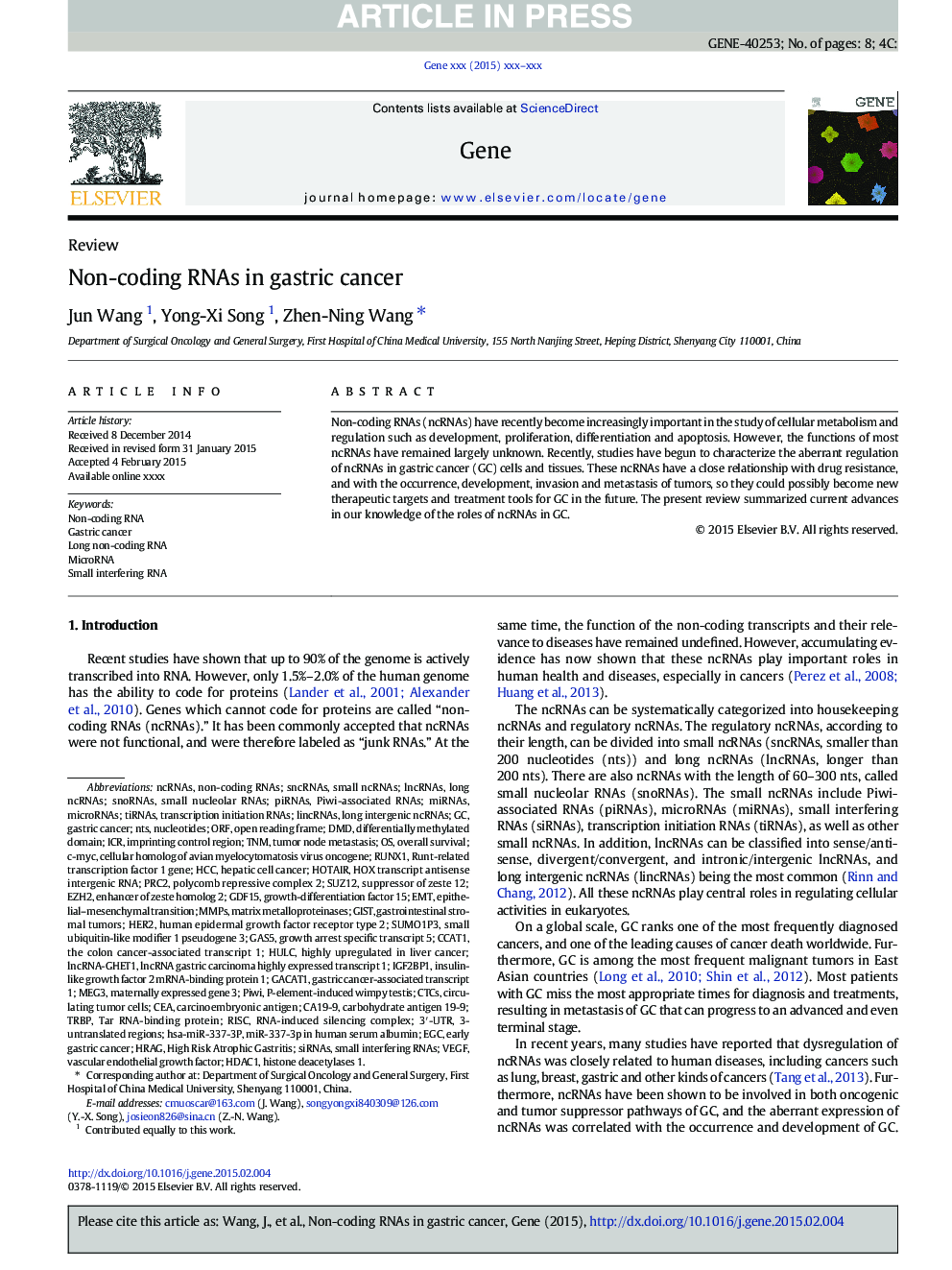| Article ID | Journal | Published Year | Pages | File Type |
|---|---|---|---|---|
| 5905476 | Gene | 2015 | 8 Pages |
Abstract
Non-coding RNAs (ncRNAs) have recently become increasingly important in the study of cellular metabolism and regulation such as development, proliferation, differentiation and apoptosis. However, the functions of most ncRNAs have remained largely unknown. Recently, studies have begun to characterize the aberrant regulation of ncRNAs in gastric cancer (GC) cells and tissues. These ncRNAs have a close relationship with drug resistance, and with the occurrence, development, invasion and metastasis of tumors, so they could possibly become new therapeutic targets and treatment tools for GC in the future. The present review summarized current advances in our knowledge of the roles of ncRNAs in GC.
Keywords
piRNAsMEG3HDAC1TNMhuman epidermal growth factor receptor type 2EZH2Hox transcript antisense intergenic RNASUZ12suppressor of zeste 12PRC2GDF15Runx1CA19-9differentially methylated domainHULCSnoRNAsGAS5small nucleolar RNAsPIWIlincRNAssncRNAsIGF2BP1TRBPCCAT1ncRNAsHER2MmpsmiRNAsORFCTCsEGCICRsiRNAsNTSlncRNAsDMD3′-UTRc-MycCeAHCClong non-coding RNASmall interfering RNANon-coding RNAsmall interfering RNAsnon-coding RNAscarcinoembryonic antigencarbohydrate antigen 19-9overall survivalenhancer of zeste homolog 2gastrointestinal stromal tumorsEMTRISCmicroRNAsGastric cancerEarly gastric cancerCTC, circulating tumor cellsVascular endothelial growth factorVascular Endothelial Growth Factor (VEGF)open reading frametumor node metastasisMatrix metalloproteinasesRNA-Induced Silencing ComplexGistMicroRNANucleotidesHOTAIRpolycomb repressive complex 2maternally expressed gene 3Imprinting Control RegionEpithelial–mesenchymal transition
Related Topics
Life Sciences
Biochemistry, Genetics and Molecular Biology
Genetics
Authors
Jun Wang, Yong-Xi Song, Zhen-Ning Wang,
